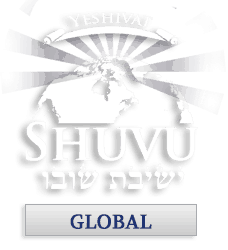וַיְהִי֩ כָל־בְּכ֨וֹר זָכָ֜ר בְּמִסְפַּ֥ר שֵׁמֹ֛ת מִבֶּן־חֹ֥דֶשׁ וָמַ֖עְלָה לִפְקֻֽדֵיהֶ֑ם שְׁנַ֤יִם וְעֶשְׂרִים֙ אֶ֔לֶף שְׁלשָׁ֥ה וְשִׁבְעִ֖ים וּמָאתָֽיִם: וַיְדַבֵּ֥ר יְהוָֹ֖ה אֶל־משֶׁ֥ה לֵּאמֹֽר: קַ֣ח אֶת־הַֽלְוִיִּ֗ם תַּ֤חַת כָּל־בְּכוֹר֙ בִּבְנֵ֣י יִשְׂרָאֵ֔ל וְאֶת־בֶּֽהֱמַ֥ת הַֽלְוִיִּ֖ם תַּ֣חַת בְּהֶמְתָּ֑ם וְהָֽיוּ־לִ֥י הַֽלְוִיִּ֖ם אֲנִ֥י יְהוָֹֽה: וְאֵת֙ פְּדוּיֵ֣י הַשְּׁלשָׁ֔ה וְהַשִּׁבְעִ֖ים וְהַמָּאתָ֑יִם הָעֹֽדְפִים֙ עַל־הַֽלְוִיִּ֔ם מִבְּכ֖וֹר בְּנֵ֥י יִשְׂרָאֵֽל: וְלָֽקַחְתָּ֗ חֲמֵ֧שֶׁת חֲמֵ֛שֶׁת שְׁקָלִ֖ים לַגֻּלְגֹּ֑לֶת בְּשֶׁ֤קֶל הַקֹּ֨דֶשׁ֙ תִּקָּ֔ח עֶשְׂרִ֥ים גֵּרָ֖ה הַשָּֽׁקֶל: וְנָֽתַתָּ֣ה הַכֶּ֔סֶף לְאַֽהֲרֹ֖ן וּלְבָנָ֑יו פְּדוּיֵ֕י הָעֹֽדְפִ֖ים בָּהֶֽם: וַיִּקַּ֣ח משֶׁ֔ה אֵ֖ת כֶּ֣סֶף הַפִּדְי֑וֹם מֵאֵת֙ הָעֹ֣דְפִ֔ים עַ֖ל פְּדוּיֵ֥י הַֽלְוִיִּֽם: מֵאֵ֗ת בְּכ֛וֹר בְּנֵ֥י יִשְׂרָאֵ֖ל לָקַ֣ח אֶת־הַכָּ֑סֶף חֲמִשָּׁ֨ה וְשִׁשִּׁ֜ים וּשְׁל֥שׁ מֵא֛וֹת וָאֶ֖לֶף בְּשֶׁ֥קֶל הַקֹּֽדֶשׁ: וַיִּתֵּ֨ן משֶׁ֜ה אֶת־כֶּ֧סֶף הַפְּדיִּ֛ם לְאַֽהֲ֥רֹן וּלְבָנָי֖ו עַל־פִּ֣י יְהוָֹ֑ה כַּֽאֲשֶׁ֛ר צִוָּ֥ה יְהוָֹ֖ה אֶת־משֶֽׁה:
The firstborn males aged one month and upward, according to the number of names, was twenty two thousand, two hundred and seventy three. The Lord spoke to Moses, saying: Take the Levites instead of all the firstborns among the children of Israel and the Levites’ animals instead of their animals, and the Levites shall be Mine I am the Lord. As for the two hundred and seventy three of the children of Israel who required redemption, who are in excess of the Levites, you shall take five shekels per head, according to the holy shekel, by which the shekel is twenty gerahs. You shall give the money to Aaron and his sons, in redemption for the firstborns who are in excess of them. So Moses took the redemption money for those in excess of those redeemed by the Levites. He took the money from the firstborn of the children of Israel; one thousand, three hundred and sixty five of the holy shekels. Then Moses gave the money of those redeemed to Aaron and his sons, in accordance with the word of the Lord, as the Lord had commanded Moses.
Numbers 3:43-51
This week’s Torah portion begins the book of Numbers. The numbers of men eligible for active military service are counted, and the organization of the children of Israel in their encampment is laid out. Another important event is discussed, the children of Levi are separated as being special for Hashem in place of the firstborn.
Hashem notes that there are not the same number of firstborn as there are Levites. There are 273 more firstborn than there are Levites. So, all the firstborn may be replaced by the Levites, one for one, except there are 273 firstborn that retain dedicated to Hashem because there is no Levite to replace them. These firstborn, then, are still dedicated to Hashem. Something must be done.
After the replacement, if the replacement is complete, Hashem will be losing 273 firstborn that are dedicated to him, there are no Levites to replace them. So a redemption must take place, an exchange of value to compensate Hashem for the loss of the 273 firstborn. The cost of the redemption is five shekels per person, which is the price Joseph’s brothers received when they sold into slavery.
This is a redemption. An exchange of value that must occur to ensure that an equitable transaction has been completed. Hashem is given shekels for each firstborn that is not replaced by a Levite. The compensation is given to Hashem through the instrument of the Kohayn. To this day, all the firstborn sons of Israel are redeemed through the payment of five shekels to a Kohayn. This ceremony is called Pidyon HaBen.
This lesson in Torah outlines the difference in meaning between redemption and salvation. For a redemption, there must be an exchange of value. A salvation, a rescue, is freely given by the mercy and grace of the rescuer. There is no exchange of value to compensate the party who is diminished by the release of the one being saved. A redemption requires that the one being diminished is compensated by an exchange of value.
Yeshua is both Savior and Redeemer, however, these terms are not synonymous. They mean very different things. As our Savior, Hashem grants our liberation through Yeshua by grace alone; by his ineffable mercy. As our Redeemer, Yeshua gives his life as the greatest Tzadik, in exchange for the merit of Israel to be sufficient. These are two very different roles. Shabbat shalom.
